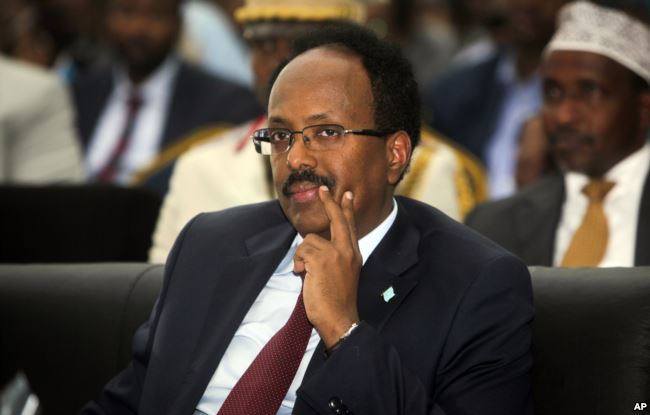Build on Oct 14 bomb fury to mend fences, think tank tells President Farmaajo


President Mohamed Farmaajo should capitalize on national outrage from the October 14 truck bombing in Mogadishu to mend ties with regional government and redeem his hitherto waning public confidence, a Mogadishu based policy think tank has said.
In a policy brief Friday, Heritage Institute for Policy Studies (HIPS) said President Farmaajo’s administration had been riddled with a series of mishaps since he came to office February strangling any meaningful development.
From the Gulf Crisis fall out, the extradition of Oromo Liberation Front leader Qalbi Dhagah to the recent truck bombing in Mogadishu which claimed over 400 lives, the policy think tank said, Farmaajo’s administration was steeped in a vicious circle of political crises detrimental to the country’s progress.
WINDOW OF OPPORTUNITY
But the President can still redeem his administration’s image and restore public confidence, the policy brief observes, noting, ‘the president may still have the political capital that could translate the October 14 tragedy into an opportunity to unite the nation, if he so chooses’.
“In doing so, he may not only resurrect his erstwhile popularity among Somalis, but he could also prevent the country from losing yet another golden opportunity.”
The move to convene a meeting with regional state leaders this week, notably the embattled Galmudug leader Ahmed Haaf is a positive step by the president aimed at bridging the rift which has seen regional leaders declare non-cooperation with the government following what they termed as deliberate attempts to destabilize their administrations.
“By inviting the embattled Galmudug leader, Farmaajo is signaling that he is not only reversing the government’s recognition of Haaf’s sacking, but he is also extending an olive branch to the new CIC bloc,” HIPS said.
The state presidents announced this month the formation of Council of Inter-Governmental Cooperation (CIC) to champion state interests in light of tussles with Federal Government.
A section of Galmudug state legislators voted September 26 to oust Haaf spiraling into a political crisis that saw a similar move by pro-Haaf faction to kick out the deputy president and House speaker. A controversial high court decision in Galmudug affirmed the ouster.
The brief also takes exception with the manner in which the Federal Government handled the various political crises that have befallen it since February.
“How the leadership of the federal government handled its clash with the member states shows its unhelpful, confrontational approach towards governance,” HIPS said.
“Instead of fostering an environment conducive to political stability, the Somali government has wasted time, energy and prestige in pointless squabbling with the regions and other political forces.”
RECOMMENDATIONS
To address the challenges, the policy brief makes a raft of recommendations including a clarity in the constitution clearly demarcating responsibilities and powers of the two levels of government in addition to indicating shared tasks and powers. It also urges against undermining the president by regional state leaders.
Somalia’s Arab neighbours should avoid interfering with political processes in Somalia, the brief notes. “Wanton meddling and inducements to politicians weakens the country’s fragile institutions and the ensuing instability only benefits al-Shabaab.”